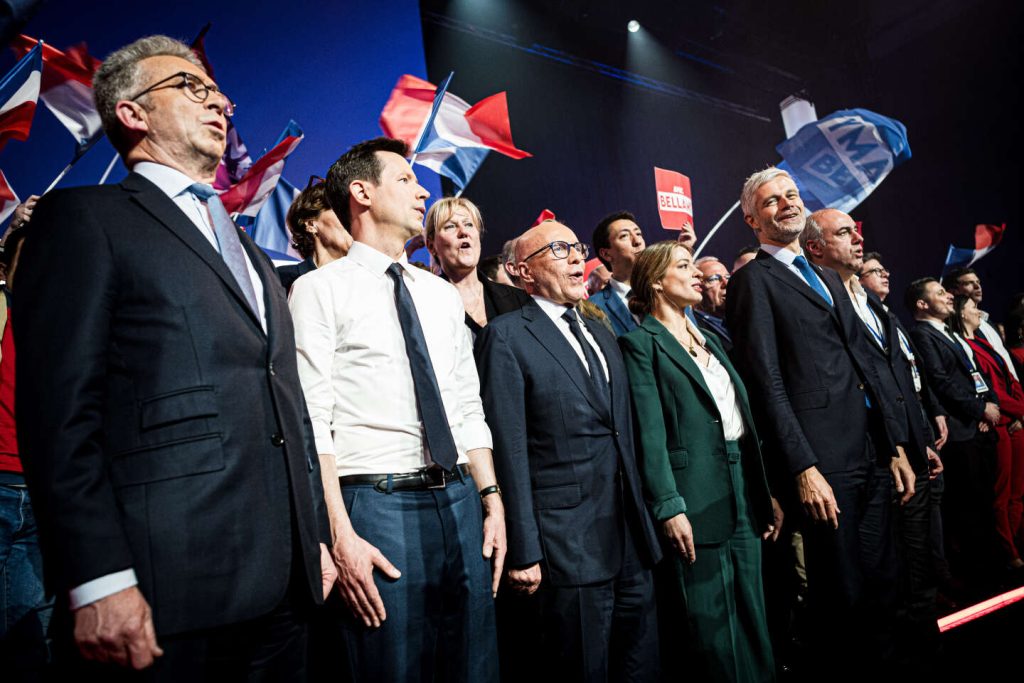Christophe Gomart, François-Xavier Bellamy, Nadine Morano, Eric Ciotti, Céline Imart, Laurent Wauquiez, and Olivier Marleix gathered in Aubervilliers on March 23, 2024. François-Xavier Bellamy, born in 1985, is a child of the François Mitterrand years whose face lights up at the mention of Georges Pompidou (1911-1974). He is the lead candidate for The Republicans (LR) in the upcoming European elections on June 9 and joins others on the right in commemorating the only president of the Fifth Republic to die in office on April 2, 1974. Bellamy expresses his admiration for Pompidou, who was a teacher of literature. He carries an old copy of Pompidou’s Anthologie de la poésie française with him as his book of choice for a television appearance.
Beyond his love for poetry, Bellamy embodies a bygone era. A time when French growth exceeded 5% per year, smoking was still allowed at the Elysée Palace, and a president could arrive in a used Porsche. The Pompidou years, from 1969 to 1974, are often seen as a golden age, only slightly disrupted by the first oil crisis of 1973. LR’s Olivier Marleix praises Pompidou for modernizing the country without causing upheaval. In 2024, Pompidou is the trend within LR, with politicians from various ideologies citing him as an example.
Formerly overshadowed by General de Gaulle’s legacy, Pompidou has now emerged as a popular figure within LR. Politicians like François-Xavier Bellamy, Bruno Retailleau, David Lisnard, and Aurélien Pradié all admire the former deputy from Cantal. Marleix highlights how his father was elected in Pompidou’s constituency, giving him an advantage. Pompidou is seen as a unifying figure for the right, appealing to both liberals and statists. He is praised for combating bureaucracy while also championing strategic state initiatives like Airbus, Ariane, and the nuclear program.
Pompidou’s influence is evident in the LR’s offices in the National Assembly, with his vintage portrait a common sight. When Laurent Wauquiez was still leading the party, he prominently displayed Pompidou’s book of political reflections, Le Nœud gordien, on his desk. Pompidou’s legacy is seen as distinctly French, combining a pragmatic approach to governance with a vision for grand projects. LR members see him as a unifying figure who embodies the best aspects of French politics and leadership.
As LR politicians continue to draw inspiration from Pompidou, his legacy is celebrated for its ability to bridge ideological divides. The former president’s emphasis on modernization and strategic state intervention appeals to a wide spectrum of right-wing politicians, from conservatives to liberals. Pompidou’s presidency is remembered as a time of economic growth and stability, marked by ambitious projects that helped shape France’s future. In a time of political uncertainty, Pompidou’s leadership style and vision for the country serve as a source of inspiration for LR members looking to unify their party and advance their political agenda.


